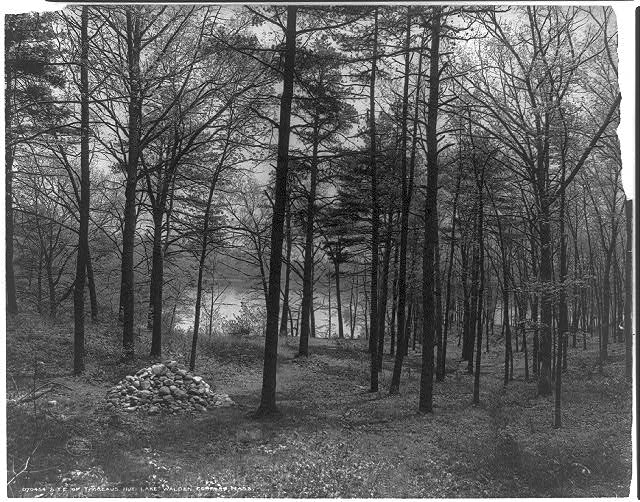Henry David Thoreau was born on July 12, 1817, in Concord, Massachusetts. Associated with the Concord-based literary movement called New England Transcendentalism, he embraced the Transcendentalist belief in the universality of creation and the primacy of personal insight and experience. Thoreau is best known for his book Walden, which chronicles the two years that he lived in a small hut near the edge of Walden Pond. Still today, we continue to find inspiration in Thoreau’s work and his example.
Take your students or children on a nature walk in your community, or have them focus on a natural setting nearby. (This could even be done virtually using a video or section of a video.) As they walk or view the setting, ask them to take note of the details of the surroundings and make a mental “snapshot” of the location in their minds.
Once they return, have students write their notes during a focused writing session, making sure to capture the details of the setting. After the initial writing session, they can revise and polish their writing and create a class booklet of the nature experience.
Looking for additional classroom ideas tied to Thoreau? Rebecca Newland, a Fairfax County Public Schools librarian and former teacher-in-residence at the Library of Congress, shares two ideas about how to incorporate the philosophies and work of Thoreau into your classroom or library.
Rebecca Newland also has a post which outlines six mini-lessons developed around the essential question, “How can philosophies of the past, specifically those of Henry David Thoreau, guide our lives today?”
For more details on Thoreau’s life and works, including his work with maps later in life. visit the Library of Congress Digital Collections “Today in History” entry on Henry David Thoreau.
Curious about the NCTE and Library of Congress connection? Through a grant announced recently by NCTE Executive Director Emily Kirkpatrick, NCTE is engaged in new ongoing work with the Library of Congress, and “will connect the ELA community with the Library of Congress to expand the use of primary sources in teaching.” Stay tuned for more throughout the year!
It is the policy of NCTE in all publications, including the Literacy & NCTE blog, to provide a forum for the open discussion of ideas concerning the content and the teaching of English and the language arts. Publicity accorded to any particular point of view does not imply endorsement by the Executive Committee, the Board of Directors, or the membership at large, except in announcements of policy, where such endorsement is clearly specified.

